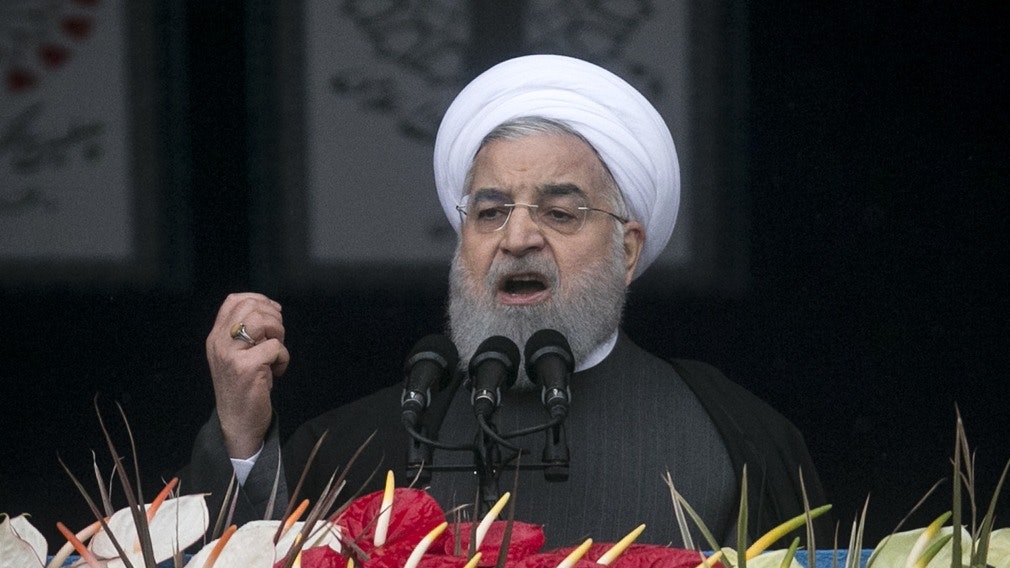The mutual disagreement between the United States and Iraq in the field of public opinion has led to the continued intensification of confrontation between the two countries. It is worth noting that Rouhani’s toughness is not only for the United States but also for the EU.
According to the Associated Press reported on May 15, some members of the two parties from the US Congress asked the White House to disclose more information about the Middle East threat. They warned US, President Trump, to avoid escalating tensions with Iran. On the 16th of May, the US Congress will hear the Trump administration close the door and introduce the situation. House Speaker Pelosi said that without the approval of Congress, Trump “has no power” to face a confrontation in the Middle East.
On May 15, the United States ordered the US government non-emergency employees to leave Iraq. At the same time, Donald Trump warned that the US military in the Middle East could be threatened by Iranian or Iranian-backed agents. US lawmakers have publicly stated that they are worried that the United States is heading for a war with Iran.
In the face of US sanctions, Iran has a strong “backlash.” Iranian Defense Minister Amir Hatami said on May 15 that Iranian defense forces are currently at the highest level of military defense and are ready to respond to various threats.
Earlier on May 8, Iranian President Hassan Rouhani also announced that Iran had suspended the implementation of some of the terms of the Iranian nuclear agreement and left it to the European and American 60-day negotiation period. Where is Rohani’s arrogant response to the United States?
The analysis believes that Rohani’s toughness is intended to beat the EU.
After the United States fully opened the sanctions, the Iranian oil trade was seriously affected. According to statistics, Iran’s exports of crude oil and condensate in August 2018 reached a record low of 64 million barrels, equivalent to an average of 2.06 million barrels per day. This is the first time since April 2017 that the monthly average export volume has dropped to 70 million barrels. The following (equivalent to an average daily export of 2.5 million barrels). After entering 2019, Iran’s oil exports continued to deteriorate. In February 2019, Iran’s daily export volume fell to 1.1 million barrels.
Not only that, but the EU’s oil imports to Iran also have a “zero amount”. According to data released by TankerTrakers, the EU imported about 220,000 barrels of Iranian oil per day in 2017. After the United States announced sanctions, the EU stopped importing oil to Iran from November 2018. In January 2019, it recovered a small amount. Imported (30,000 barrels per day), but in February it stopped importing Iranian oil again. Judging from the above data, the EU has already had a “zero” import status during the exemption period, and it is likely to maintain this situation for a long time after the exemption period.
The original intention of Rohani’s 2015 Iranian nuclear agreement was to hope to develop the economy, and the main pillar of the Iranian economy was oil trade (accounting for 80% of its exports). Less than half a year after the US sanctions were restarted, the Iranian oil trade has been reduced to half. This situation is unacceptable to Rohani, and he is eager to change. ,
It is worth mentioning that Britain, France, and Germany chose to stay in the Iranian nuclear agreement when the United States launched the Iranian nuclear agreement. It also indicated that it will focus on maintaining the legal trade between Europe and Iran, including the actual operation of the “INSTEX” settlement mechanism.
Nowadays, the United States has increasingly imposed sanctions on Iran, but the EU has been slow to move. Ou has also shrunk in oil trade. Luhani naturally can no longer sit still and wait for the United States to compete with each other at the moment, and named the EU, also to urge the EU to help Iran through the storm.
Although during the confrontation between the United States and Iraq, the EU has demonstrated its attitude to support the Iranian nuclear agreement on the diplomatic level, US Secretary of State Robert Pompeo also warned Jeremy Hunt, the British Foreign Secretary during his visit to Brussels on May 13. The United States and Iran do not “accidentally” cause conflict; the European Union (EU) Foreign Policy and Security Policy Representative Federica Mogherini also said that no military upgrades to Iran are allowed.
But what must be seen is that the EU has fallen into a dilemma in the “war” of the United States and Iraq. The EU and the United States are traditional allies. In many international affairs, they are accustomed to taking the lead in the United States and closely related to the United States in military and economic terms. If the EU disregards the United States and insists on providing assistance to Iran or the “special” relationship of the United States, it has already determined that the EU has little room for trade with Iran.












